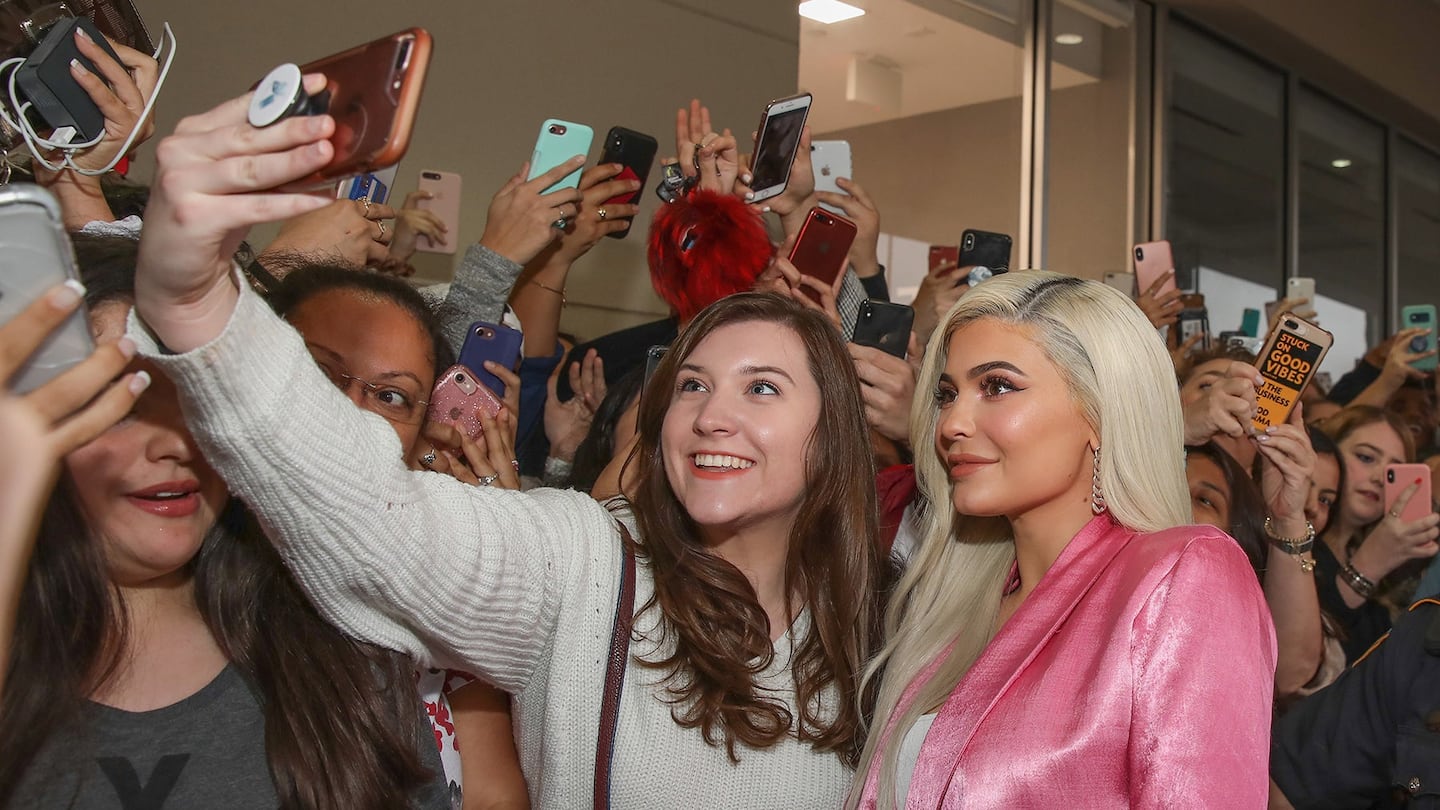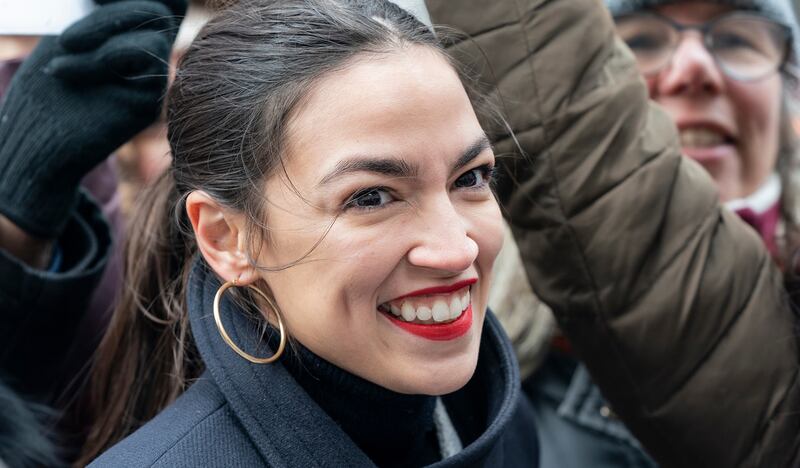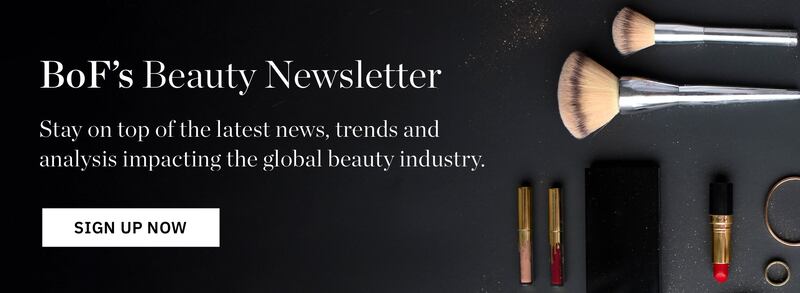
The Business of Fashion
Agenda-setting intelligence, analysis and advice for the global fashion community.

Agenda-setting intelligence, analysis and advice for the global fashion community.

Welcome to BoF's Beauty Newsletter, featuring members-only analysis and the week's top news from the frontlines of the global beauty business. Subscribe here.
By Rachel Strugatz
That figure represents the sales generated by Rihanna's Fenty Beauty range in its first full year in business, LVMH reported last week. The brand, created in partnership with the French luxury conglomerate's Kendo Beauty division, launched in September 2017, and the "Fenty Effect" was born. Fenty Beauty's 40 shades of foundation (since expanded to 50) now act as a litmus test for the beauty industry; Morphe's foundation (60 shades) was celebrated on its launch last month, while debuts from Tarte and It Cosmetics last year featuring more limited ranges for women of colour were subject to online pile-ons.
Kylie Jenner launched her beauty line a couple of years before Rihanna, in 2015, and as of November a selection of her lip products entered all of Ulta's approximately 1,200 locations, where it plays a similar role in driving both sales and buzz. Tara Simon, senior vice president of merchandising at Ulta Beauty, told BoF that the retailer expects to up Kylie Cosmetics' presence online and in-store with a broader selection this year.
ADVERTISEMENT
According to the same WWD story, Jenner's biggest sales day to date was Nov. 21, 2016 when her e-commerce site did $18,926,657.29 million in sales. This is evidence that Jenner can equal Rihanna's hype, but perhaps hasn't built as sustainable a business – yet. The former relied on direct sales until entering Ulta, which still only carries an assortment of her product in the lip category, and doesn't have Sephora's global muscle behind her (Ulta has yet to expand beyond the US).
Editor's Note: The previous edition of this newsletter, published 29 January, 2019, misstated that Drunk Elephant’s asking price for a sale is $1 billion. This is incorrect. Industry experts predict the company could sell for that amount; the company itself has not floated this figure with potential buyers.
THIS WEEK IN BEAUTY

Alexandria Ocasio-Cortez | Source: Shutterstock
By Kati Chitrakorn
Alexandria Ocasio-Cortez brought K-beauty to Congress. The hugely popular Democrat has become the first congressional member to put a cult beauty trend up for discussion by revealing her skincare routine (it's heavily influenced by Korean beauty regimens). K-beauty has been making its way into the American consciousness since about 2015. It involves exotic ingredients such as snail mucus and an emphasis on knowledge of active ingredients. The approach has infiltrated the mass market, giving rise to sheet masks, serums, essences and other skincare products.
Budget cosmetic brands are the next big thing. Thanks to low-price, premium-looking brands such as The Ordinary and Beauty Pie, it's now cool to talk about costs, profit margins and integrity. Transparency about pricing has become a significant factor for savvy consumers who've grown up expecting more for less, and any stigma attached to supermarket and own-label brands is fading. Sainsbury's relaunched its Boutique line last year with 109 products, priced from £2; while Boots has launched label CYO, which features 200 products including eyeshadows starting at £3.50.
Target's accelerator welcomes 10 new beauty startups. As Target continues to brush up on its beauty offerings, adding more lines from emerging startups is one path to drive consistent foot traffic, much as its new private label lines have been. For young brands, the opportunity to work with Target has the potential to get their product in front of thousands of mass merchandise shoppers. Past brands that have made the jump include Girl+Hair and YUNI Beauty. Oars + Alps, a natural skincare product line for men, will make its debut in February.
ADVERTISEMENT
Beauty brands are serving food. Glossier, Benefit and L'Occitane are the latest brands to grow their audiences with pop-up cafes. For Benefit, it came in the form of a bright pink roller diner in Los Angeles, where items such as its popular brow products, new eyeliner launch and "BeneBabe" merch — a line of pink crop tops, tumblers and makeup bags — were sold. Glossier launched a pop-up shop inside San Francisco's Rhea's Cafe, while a L'Occitane cafe opened in Singapore after successful ones in Tokyo and London. It's all part of a wider trend where brands are using offline experiences to engage its existing digital community.
Malaysia's halal beauty market is growing swiftly. With two-thirds of the world's Muslim population in Asia-Pacific, the southeast Asian country wants to be a global halal hub. It's a lucrative business: In 2017, the local halal industry contributed approximately 7.5 percent to Malaysia's GDP. SimplySiti, founded by singer Siti Nurhaliza, offers cosmetic, fragrance and skincare products that are halal-certified. Mainstream firms such as Clara International, Johnson & Johnson, Silky Girl and Wipro Unza have also jumped on the halal bandwagon. Halal cosmetics must be free from alcohol, blood and parts or substances from animals that have not been slaughtered, according to Islamic practices.
The Business of Beauty wants to hear from you. Send tips, suggestions, complaints and compliments to our correspondent in New York, Rachel Strugatz (rachel.strugatz@businessoffashion.com), and in London, Kati Chitrakorn (kati.chitrakorn@businessoffashion.com).

The skincare-to-smoothie pipeline arrives.
Puig and Space NK are cashing in on their ability to tap the growth of hot new products, while L’Occitane, Olaplex and The Estée Lauder Companies are discovering how quickly the shine can come off even the biggest brands.
Demand for the drugs has proven insatiable. Shortages have left patients already on the medications searching for their next dose and stymied new starters.
The company reported a long-awaited lift in net sales in its third quarter results, with increases from skincare leading the way, but clouds persist over its China recovery.